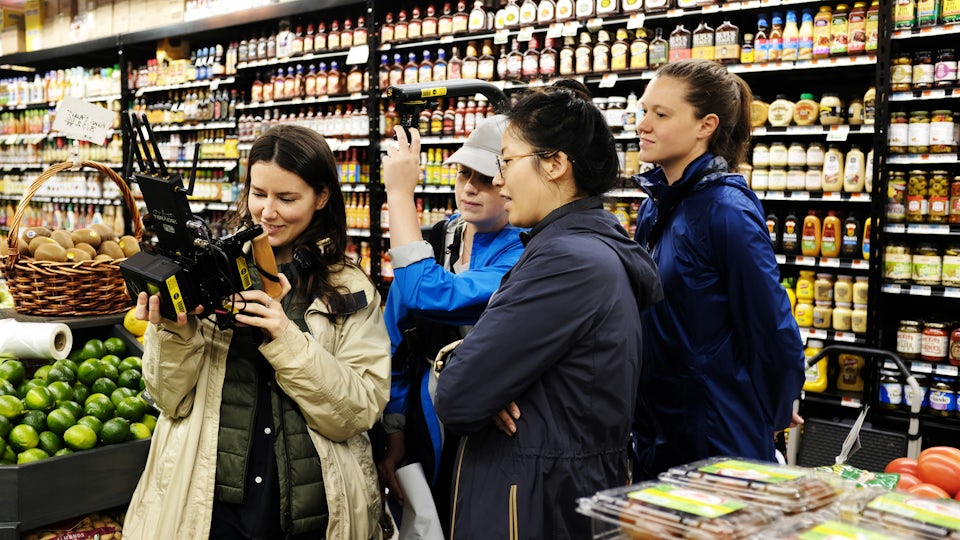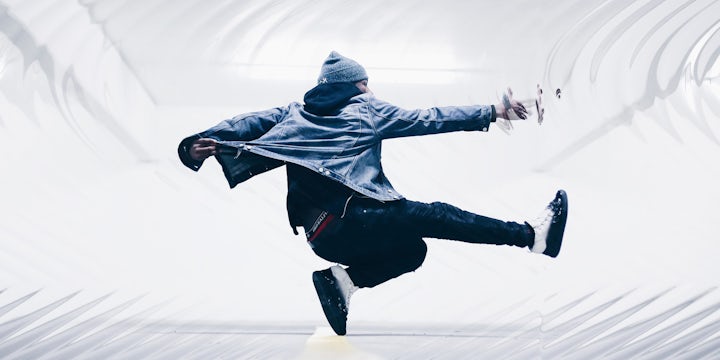
The art of writing an effective creative brief.
Guides & Inspiration • 11min read
Guides & Inspiration • Written by Ellie CK, Creative Community Manager & Catherine Graves, Marketing Director
At Genero, we’re committed to driving creative diversity and inclusivity across the advertising industry.
We’re proud to give creatives all over the world the chance to have their voices heard and opportunities to work with global brands and the biggest bands. At the same time, our clients are able to source talented creative teams with a deep understanding of their audience who produce authentic content that resonates.
As the 8th of March is a day for celebrating women’s achievements across the world, we’re highlighting five amazing female filmmakers from our creative network who are impressing us and making a mark in the industry.
We wanted to hear from these filmmakers about the turning point in their careers, and in line with the theme of International Women’s Day, we asked: What do you see is the best way to achieve greater equality and diversity in the advertising and media industries?

Jess Lowe is a first generation Costa Rican/American Producer and Director, currently heading up the New York office for the global commercial Production Company Fresh Film. Jess produces commercials for a variety of brands from Dove to the Lincoln Motor Company, as well as music videos for artists like Radiohead and Maggie Rogers. She headed up an all female creative team to direct the stunning music video for Brandi Carlile’s Mother through Genero last year.
In the commercial and music video world there are two parties responsible for this – people who represent directors (production companies) and people who hire directors (labels/agencies). I look to some of the big production companies with their all white, male roster and it’s sad to see but I wonder how they’ll do in the long run.
I’m proud to work for a female owned production company. Almost half our roster is female which is also very very rare. What’s even better is that from the agency side, briefs are coming in for us specifically asking for POC and female directors – so from our perspective, we’re seeing a positive and rapid shift towards diversity first hand.
"From our perspective, we’re seeing a positive and rapid shift towards diversity first hand"
I didn’t go to college, let alone film school so I had to learn by doing. Anytime an opportunity would come up I’d say yes and dance around my level of experience or knowledge. The funniest one was when I got promoted from PA to UPM of a feature length film when I was 23. For people who don’t work in film, that’s like going from intern to Vice President of the company. At that point I had only assisted a director on a film in post production and PA’d one day on set of a short film. It’s safe to say I had no idea what I was doing but there’s no doubt that I learned everything I would have in 4 years of film school…in the 2 months of that production.
Brandi Carlile, The Mother
Crybaby is a Sydney-based creative content agency, who produce engaging and unique content under expert direction from Clare Alstin and Catherine Stone. Their combined expertise in both technical and aesthetics make them a formidable team in beauty, creating captivating content for brands like Mecca Max, Rationale, Chloe Morello for Lancome and Aveda. An example of the work they’ve produced for us is below, where Pond’s needed a creative team with strong skincare experience to re-shoot an existing Thailand campaign for the Myanmar market.
We were recently certified by Weconnect International which ‘connects womens’ enterprises with global opportunities’, and in the short time we’ve had that certification, we’ve been approached by a few major global brands which we would never have had access to otherwise. Initiatives like this are so important in giving women in business support and connection.
We’ve always done incredibly well in ‘womens-skewed content’ but trying to break into broader categories has been a challenge. Microsoft Australia is one of our long-standing client relationships and they’re incredibly supportive. It’s opportunities like this that are so valuable when running a business in 2020, and so companies who hire with diversity in mind really are making a difference to women-owned businesses that may otherwise get overlooked.
"Now, via the Genero platform, we’re getting some exciting work in Asia which is so important to our next steps"
Every time we work with a global brand it’s a massive highlight for us: Estee Lauder, L’Oreal Luxe and Microsoft Australia have all helped open doors to grow our business. Now, via the Genero platform, we’re getting some exciting work in Asia which is so important to our next steps. In saying that, some of our work for independant, Australian-owned brands has been the most referenced, complemented and rewarding to execute. We’re able to really drive the creative in these projects and bring the brand’s vision to life, and seeing their business grow and evolve is really rewarding!
Original campaign for Thailand
Localised Myanmar campaign
Aabroo Hashimi is a renowned photographer and a pioneer of women fashion photography in Pakistan, where she’s known for her celebrity fashion stories and gets commissioned for major productions. She also directs music videos, fashion films and ads, and her short film for Lux was one of the three winning submissions highlighting success stories of real women.
I feel that multiple effective measures need to be taken to achieve greater equality and diversity in the advertising and media industries. Starting with continuing the fight for getting the concept of inequality accepted as a real issue. We need to have brave supporters in the top executive tier who stand for the rights of women openly, and create opportunities specifically for women and minorities, if that’s what it takes and encourage others to do the same.
The industry needs to give women creatives equal opportunity, trust and respect so that they can produce higher quality content too. Giving women access to the same resources of production as their male colleagues will allow them to be fully creative in their work and show their true potential.
The opportunity to work as a photographer in Dubai at the age of 22 was definitely a turning point for me. I had moved from Pakistan at the time and being treated like an artist by industry professionals was a wonderful feeling. It gave me appreciation from my industry peers and the encouragement I was looking for to not let go of my passion.
Lux, Real stories.
Finally, we spoke to Nicita Botha, the Director, Owner and Producer of London based production company Nac and Me. She’s a master of all trades, working on a project from pre-production through to post and for brands like Peugeot, Jean Paul Gaultier and Lewis Capaldi. Nacita has used her impressive motion design expertise to transform existing assets for a number of Genero clients, into mobile-first video ads for social. A few examples of her work are below.
"The turning point in my career was when I realised that no-one was stopping me from opening a business except for myself. If I wanted to create content then I could do it, I just needed to want it bad enough"
I believe in order to achieve equality and diversity in the advertising/media industries we need to look past stereotypical gender-normative roles within the industry and be open to all genders in all creative roles. It’s no longer “women do the make-up and men hold the camera.” No! If we create a safe and welcoming space for any gender to explore all aspects of the industry, we will inadvertently grow a more diverse creative space.
The turning point in my career was when I realised that no-one was stopping me from opening a business except for myself. If I wanted to create content then I could do it, I just needed to want it bad enough. From that moment onwards I have dedicated every moment to learning new skills, developing the old ones and building something that I am proud of.
Skwosh
Colette
These filmmakers are all uniquely successful in their own careers, and we’re proud to have them in our network.

Guides & Inspiration • 11min read

Guides & Inspiration • 4min read